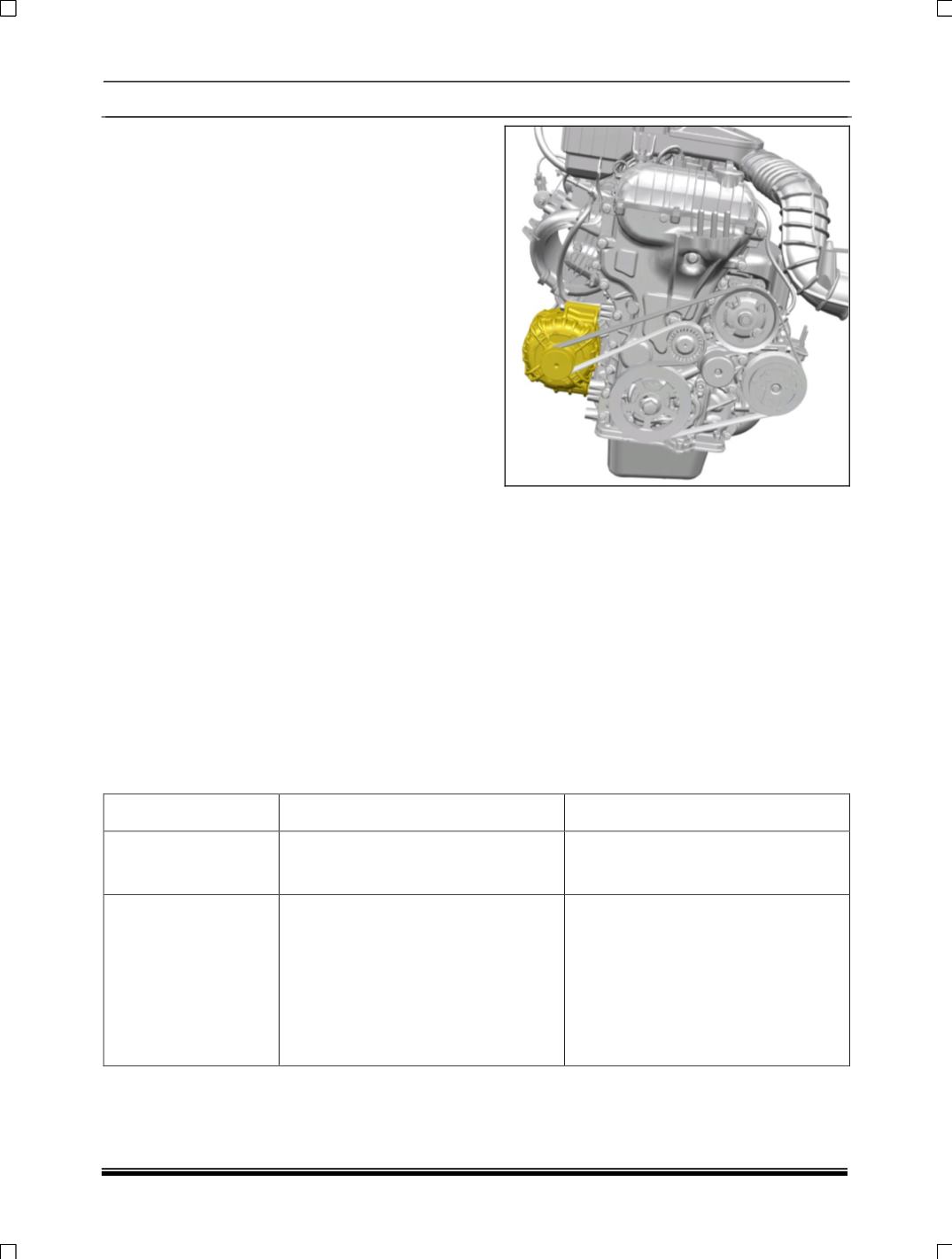

ELECTRICAL
10
8.5 ALTERNATOR
SPECIFICATION
14.5V, 110A for 1.2L NG (Petrol) Engine
14.5V, 120A for 1.05L CRAIL (Diesel) Engine
8.5.1 CHECKS ON ENGINE
START THE ENGINE
a.
Battery charge indicator lamp from
Instruments Cluster does not glow:
Check if
bulb is faulty. Checks fuse continuity. Replace if
necessary.
Connect an ammeter of suitable range in series
with the positive terminal of the battery.
Raise the engine speed to near about 2000 rpm
and switch ‘ON’ the Head Lamp, Parking Lamp,
Heater, Tail Lamp and other electrical loads.
Rated current output should be reached without
voltage dropping to 13 volts. Rated current output
if not reaching, remove the alternator for thorough
checks.
Reduce the engine speed to near about 1500
rpm, and ensure that the ammeter reading falls
around 3 to 5 Amps. Check the voltmeter reading.
It should read between 13.8 to 14.2 volts. If not,
remove the alternator and check the regulator.
b.
Warning lamp continues to glow:
Check the
belt tension. If found slack, adjust the belt
deflection to the specified value. Repeat test.
REMOVAL AND REFITMENT OF ALTERNATOR:
(Refer Engine section)
8.5.2 DIAGNOSTIC INFORMATION AND PROCEDURES FOR ALTERNATOR & BATTERY
CONDITION
POSSIBLE CAUSES
CORRECTION/REFERENCE ITEM
Battery
getting
discharged
Leakage current is high due to extra
accessories fitted on the vehicle.
Measure the leakage current. If it is
greater than 15mA, disconnect the idle
power consuming accessories.
Battery not getting
charged
1. Alternator belt loose
2. Battery terminals loose
3. Battery terminals corroded
4. Alternator voltage regulator setting
Wrong
5. Idle speed of engine too low
Tighten belt
Tighten the terminals
Clean the terminals
Check alternator output voltage. It
should be between 13.5 V and 14.5 V.
Otherwise replace the regulator with a
genuine spare.
Adjust engine idle speed










